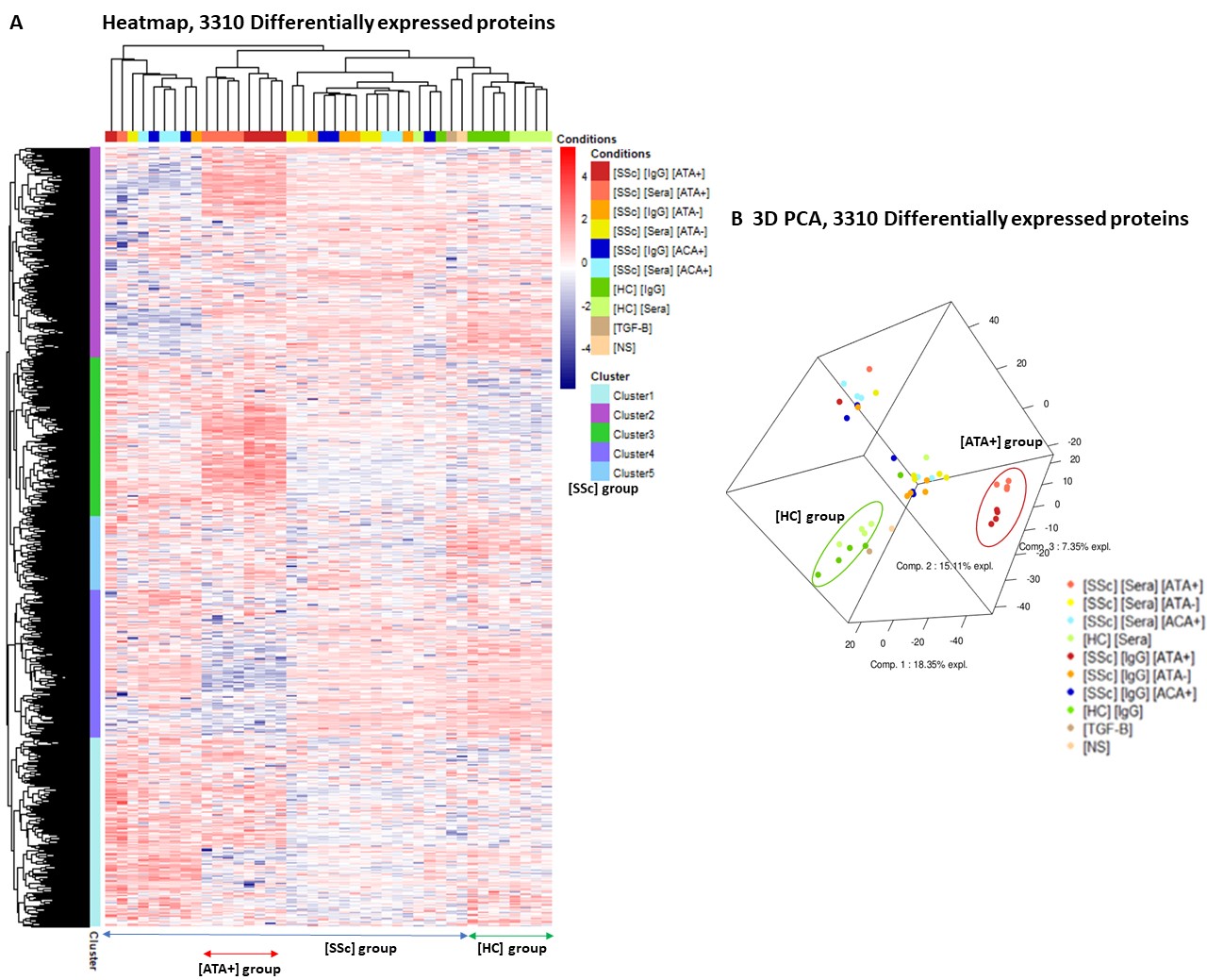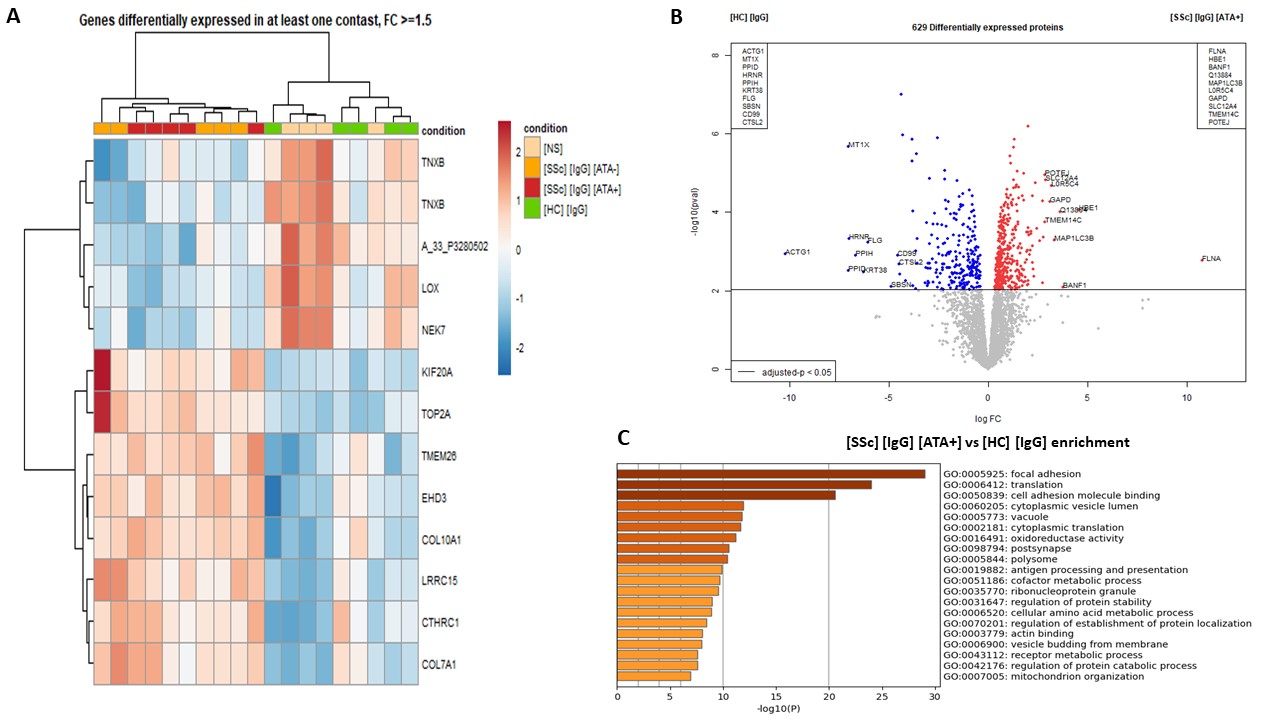Session Information
Date: Sunday, November 7, 2021
Title: Systemic Sclerosis & Related Disorders – Basic Science Poster (0541–0559)
Session Type: Poster Session B
Session Time: 8:30AM-10:30AM
Background/Purpose: Antinuclear antibodies are frequent in systemic sclerosis (SSc). While recognized as potent biomarkers, their pathogenic role is much more debated. This study explored the effect of purified IgG from SSc patients on the phenotype and function of healthy dermal fibroblast (FB) using an innovative and unbiased multi-omics approach.
Methods: Normal dermal FB were cultured in the presence of purified IgG from patients with diffuse cutaneous SSc (dcSSc), limited cutaneous SSc or healthy controls (HC). FB proteome and transcriptome were explored using mass spectrometry coupled with liquid chromatography (LC-MS/MS) and microarray assays, respectively.
Results: Proteomic analysis identified 3310 differentially expressed proteins (DEP). SSc sera and purified IgG induced singular modifications FB protein profiles. These FB proteome changes were dependent of SSc serotype, especially pronounced with purified IgG from anti-topoisomerase I antibodies (ATA) positive patients (Figure 1). The enriched Gene Ontology (GO) terms upregulated in IgG purified SSc were involved in macroautophagy, positive regulation of protein transport and cell adhesion molecule transport. Transcriptomic analysis distinguished 764 differentially expressed genes and confirmed that IgG from dcSSc can induce profibrotic changes in genes profiles of FB. IgG from ATA positive patients induced singular changes: 629 DEP were identified in dcSSc ATA+ purified IgG and GO terms analysis showed enrichment in focal adhesion, cadherin binding, cytosolic part or lytic vacuole. Filamin A was the most strongly overexpressed protein in the presence of purified IgG compared to HC (Figure 2).
Conclusion: We identified that purified IgG from SSc can modify the phenotype of normal dermal FB. This effect seems dependent of the serotype. Purified IgG from dcSSc exhibited profibrotic properties with a singular profile of proteins expression and mRNA in patients with ATA.
To cite this abstract in AMA style:
Chepy A, Vivier S, Bray F, Figeac M, Meneboo J, Ternynck C, Guilbert L, Jendoubi M, Rolando C, Launay D, Dubucquoi S, Marot G, Sobanski V. IgG from Systemic Sclerosis Patients Induce a Profibrosing and Serotype-dependent Phenotype in Normal Dermal Fibroblast: A Multi-omics Study [abstract]. Arthritis Rheumatol. 2021; 73 (suppl 9). https://acrabstracts.org/abstract/igg-from-systemic-sclerosis-patients-induce-a-profibrosing-and-serotype-dependent-phenotype-in-normal-dermal-fibroblast-a-multi-omics-study/. Accessed .« Back to ACR Convergence 2021
ACR Meeting Abstracts - https://acrabstracts.org/abstract/igg-from-systemic-sclerosis-patients-induce-a-profibrosing-and-serotype-dependent-phenotype-in-normal-dermal-fibroblast-a-multi-omics-study/


